Projects
Adaptive Education
To the project browser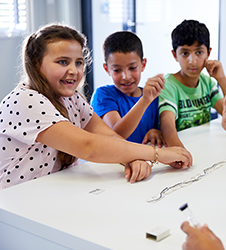
MultiDynAssess-India
The project designs, implements, and evaluates multilingual dynamic assessment (DA) in Indian primary government schools where English is taught in a context characterised by high sociolinguistic diversity and widespread code-mixing practices. It investigates how multilingual versus English-only DA affects Grade 4 students’ language and content learning over time, drawing on classroom observations and a longitudinal comparison with traditional static assessment in schools in New Delhi and Guwahati. By aligning assessment with learners’ full linguistic repertoires, the project aims to promote equity in education and offers implications for multilingual assessment practices in India and other linguistically diverse contexts in the Global South.
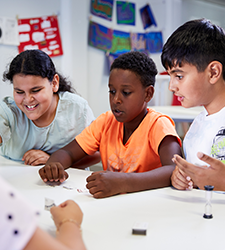
MultiDiskurs
The project aims to account for patterns of variation in the processing of linguistic structures in discourse. In particular, we investigate how bilingual children ranging in age from 8 to 12 integrate morphosyntactic and discourse information, for example by using eye-tracking experiments. Among the factors that contribute to individual variation, we explore the role of cross-linguistic influence, differences in bilingual profiles in terms of language and literacy exposure, individual cognitive skills and bilinguals’ ability to share discourse strategies across their two languages.
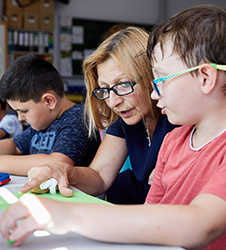
PRISMA
Working memory is central to school learning and is shaped by teacher–child relationships. Previous research has mainly focused on differences between children, although performance and relationships also vary substantially within the same child. Our project examines how these daily fluctuations affect short-term learning and long-term developmental pathways.
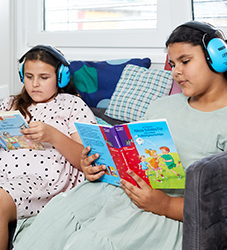
KaKoTex
The project KaKoTex investigates how grammatical features of texts and individual characteristics of the readers (e.g. multilingualism) affect text comprehension in 4th grade. The focus is on the comprehension of linguistic means for marking cause-consequence relationships, so-called causal connectives (e.g. because, therefore). The project aims to find out (i) whether explicit marking of causal relations facilitates text comprehension, (ii) for which causal connectors this holds, and (iii) which students benefit from it.
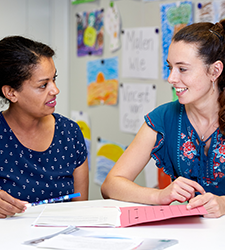
TeWiPrax
In the TeWiPrax project, researchers and teachers from the group „Sprachförderung/Mehrsprachigkeit“ of the “Campusschulen” program collaboratively develop and test materials that support secondary school students in understanding scientific texts. A particular focus is on academic and subject-specific vocabulary.

CLaB
This interdisciplinary research project investigates systematically Child Language Brokering (CLB) – informal translation practices by multilingual students – in German-speaking schools. Three sub-studies explore children’s and teachers’ perspectives on CLB, its interactional patterns, and its educational potential. The aim is to collaboratively develop approaches to translingual didactics and make them applicable to everyday school practice.

ScriVo
The ScriVo (lat. scribere and lat. vocali) project investigates whether there is a relationship between the auditory discrimination skills of primary school children with German as a second language for long and short vowels in German and their written language skills, in particular when writing elongation graphs (to mark long vowels) and double consonants (after short vowels).

MespE
MespE focuses on teachers’ attitudes towards their pupils’ migration-related multilingualism. The effects of these attitudes on teachers’ judgments and expectations will be examined, and the findings will be used to design appropriate intervention measures (professionalisation/training concepts) to initiate the associated reflection processes.
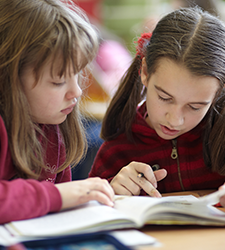
KonText
The KonText project investigates how grammatical features of texts and individual characteristics of readers (e.g. multilingualism) influence text comprehension. The focus is on the comprehension of linguistic means of indicating basic sequential relationships, so-called causal connectors (e.g. because, since, therefore). The project aims to find out (i) whether explicit labelling of causal relations facilitates text comprehension, (ii) for which causal connectors this is true, and (iii) which students benefit from this.

EAGLeS
The EAGLeS project focuses on the acquisition of written language skills when learning English as a foreign language in Years 5 and 6. It will look for systematic differences between children with reading and/or spelling difficulties and those without. This will be followed by the development and validation of an English diagnostic procedure.